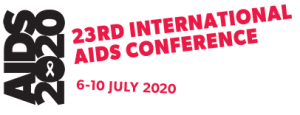This Call to Action has been developed by Frontline AIDS, AIDS and Rights Alliance for Southern Africa (ARASA), Global Coalition of TB Activists, TB People, and Stop TB Partnership alongside community organisations on the frontline of the HIV and TB responses, and national, regional and global civil society groups committed to ending AIDS and TB.
We recognise and welcome the contributions that the Global Fund to Fight AIDS, TB and Malaria and a number of donor governments have already made towards tackling COVID-19. However, further action is needed to sustain progress on HIV and TB during the COVID-19 pandemic, to adapt HIV and TB programmes so that they can also address COVID-19 and to protect human rights.
With this Call, we ask governments, donors and UN partners to support our efforts, by committing to the following actions during the COVID-19 pandemic.
SUSTAIN PROGRESS ON HIV AND TB
Even before COVID-19, the world was failing to deliver on global HIV and TB targets, and HIV prevention continues to be in crisis. Now under lockdown, we have seen prevention services disappear overnight, with disastrous consequences. Women and girls are facing higher risks of HIV infection under lockdown, due to increased levels of violence, yet many now have no access to essential HIV or SRHR services. A severe shortage of condoms is looming, and the sudden closure of harm reduction services is depriving people who use drugs of access to opioid substitution therapy and other life-saving interventions, putting them at higher risk of HIV, TB, viral Hepatitis and fatal overdose.
In many countries, we are also seeing resources diverted from the HIV and TB responses to COVID-19. People living with HIV and TB are finding their treatment providers closed, and in some countries, supply chains are no longer functioning. The WHO has warned that if we do not overcome these interruptions, we could face more than 500,000 extra deaths from AIDS in 2020–2021. Modelling by the Stop TB Partnership has also shown that an additional 1.4 million people could die due to the impact of lockdown on TB programmes.
We ask governments to urgently recognise HIV and TB prevention and treatment as essential, and to ensure that they have enough staff, resources and supplies to continue uninterrupted HIV and TB services during the COVID-19 pandemic. We also urge donors to honour their existing commitments to sustain and increase HIV and TB funding during the COVID-19 pandemic. UNAIDS and other UN partners must continue to advocate for adequate HIV and TB funding, in order to meet global targets and avoid undoing the gains of recent years.
ADAPT COMMUNITY RESPONSES TO HIV AND TB TO TACKLE COVID-19
Communities are an integral part of health systems, and networks of people living with HIV and community organisations have been on the frontline of the HIV and TB responses for decades. Many are now also playing a critical role in tackling this new pandemic, adapting their existing programmes to include COVID-19 awareness and prevention and to address the health, social and economic consequences, from gender-based violence to loss of livelihoods and food insecurity.
We call on governments, donors and UN agencies to recognise the essential work that communities on the frontline of the HIV and TB responses are doing to tackle COVID-19, and to focus on providing community organisations with the financial resources, technical support and equipment they need to adapt to COVID-19, instead of starting brand new programmes using parallel structures. We also urge donors to grant maximum flexibility to existing partners, so that they can adapt to address HIV, TB and COVID-19 together, alongside the social and economic impacts of COVID-19 restrictions, including lockdown.
PROTECT HUMAN RIGHTS
As HIV and TB organisations, we know too well how stigma and human rights violations can rapidly erupt in the face of a health crisis. As COVID-19 responses by governments continue and human rights are limited to reduce the spread of the virus, we are seeing a rise in human rights abuses targeted at people who are already marginalised or criminalised due to sexual orientation, gender identity, drug use or sex work. The Frontline AIDS’ Rapid Response Fund, which provides grants to LGBT people in emergency situations, has received almost triple the number of applications since January, highlighting examples of LGBT people being jailed for putting others at risk for COVID-19, and underlining the acute challenges facing marginalised communities as this pandemic takes hold.
We demand that governments and all other state actors desist from human rights violations carried out in the name of the COVID-19 crisis, and urge them to uphold dignity and human rights for all people. We also urge donors and UN partners to make human rights a core component of their responses to COVID-19, by increasing their advocacy efforts in response to human rights violations and by ensuring that new vaccines and treatments for COVID-19 are available and affordable for all, in line with the right to health.
To sign your organisation on this Call to Action, please email: [email protected].
More info and all signatories on: https://frontlineaids.org/sustain-adapt-protect-a-call-to-action-on-hiv-tb-and-covid-19/
